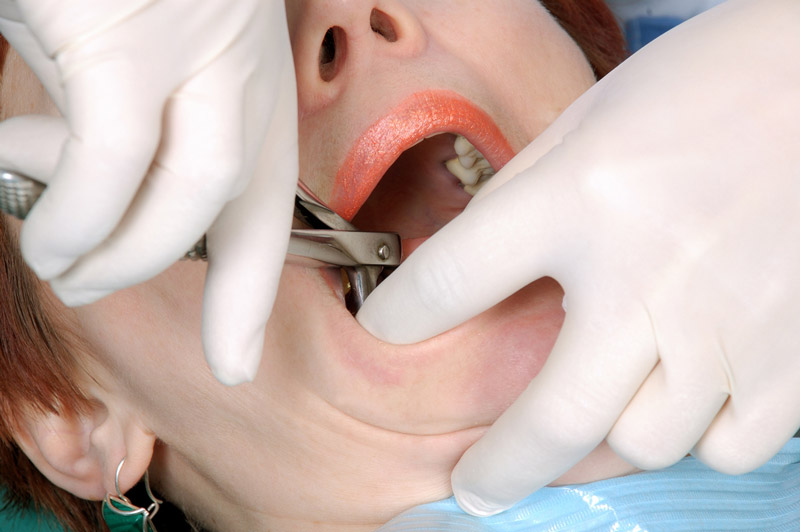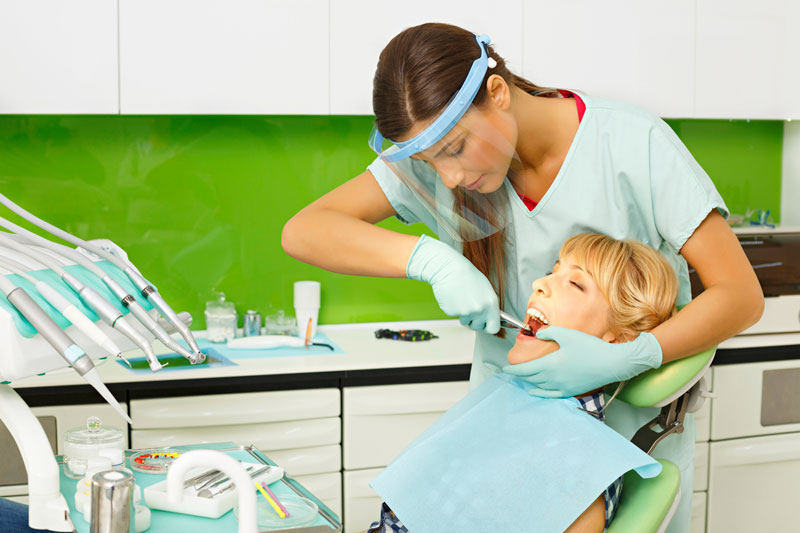Post Wisdom Teeth Removal Care Instructions & Useful Tips

The Reasons Behind Having Wisdom Teeth Removed
The most common reason for having wisdom teeth removed is overcrowding. In dentistry, this is called impacted wisdom teeth. The risk of leaving impacted wisdom teeth in the mouth could cause a collision with the roots of the molars. Not only does this threaten the health of the molars but it also encourages the growth of plaque and bacteria. Another reason behind having wisdom teeth removed is due to cavities and decay. Because of their awkward position, it is difficult to brush them properly and naturally, which can lead to cavities. With any other tooth, a dentist will simply fill the cavity.With a wisdom tooth, however, many more cavities are likely to form. Dentists often recommend the removal of wisdom teeth in this case. For the majority, the growth of wisdom teeth tends to happen in adulthood; however, it is not unheard of for them to grow during childhood. It’s also important to note that not everyone will grow wisdom teeth. For some, they simply never form, in which case you’ll never have to worry about the removal of them.
What to Do Immediately after Surgery
It is completely normal to experience bleeding after having wisdom teeth removed. They are, after all, pretty large teeth and most of the time very secure. Once the dentist has finished the procedure and the local anesthetic starts to wear off, they will place gauze over the gap. It is recommended that a gauze pad is kept on the surgical site for at least 30 minutes after the procedure. If active bleeding is evident at this point, then you should replace it with another one. Alternatively, if the bleeding has stopped, you can leave the area exposed. When you’re home and resting up, you can grab an ice pack to place on your cheek to help soothe the post-operative pain and reduce swelling, which can include the jaw muscles. Once the general anesthetic has worn off, there will likely be a lot of discomfort and pain. This is the green light for you to grab your prescribed pain medication and begin to relieve those symptoms. It’s important to follow the dentist’s instructions regarding medication as they are not only for pain relief but also to prevent infection. A course of antibiotics should always be completed, even if you feel that you no longer need them.
Oral Hygiene Post Wisdom Tooth Removal
A good oral hygiene regime is, of course, essential for tooth health, but the first few days following surgery you will need to take extra care when brushing your teeth to avoid severe pain, as well as possible infection and swelling. Your mouth will most likely still be tender, so vigorous brushing will not be a natural impulse anyway. Almost all dentists will advise against rinsing your mouth with anything on the day of wisdom tooth removal. Instead, they suggest that you continue rinsing the day after. During the healing process, rinsing your mouth with salt water at least five times a day as part of the post-operative care will prevent food particles from being trapped in the surgical area. It is especially important to use the salt water rinse after every meal or snack to help the area heal faster.
Eating after Wisdom Tooth Extraction
While your mouth is recovering from the trauma of having wisdom teeth removed you will probably find that eating is a lot harder due to the swelling. Because of this, it’s a wise idea to increase your fluid intake. Naturally, the food intake and selection will be somewhat limited for a few days. It goes without saying but hard and chewy food, as well as many other solid foods, should be avoided for a while. Options like yogurt, soup, steamed vegetables, and mashed potato will be much easier to consume. Basically, any food types thatrequire very little movement or chewing. When drinking, it can be tempting to use a straw; however, the sucking motion can cause the blood clot to come loose resulting in a rebleed, as well as cause aggravated the extraction area, leading to more pain and swelling.
Post Wisdom Teeth Removal Tips
After wisdom tooth extraction active bleeding may continue for a while. One way to promote the blood to clot is to bite down on the gauze for around 30 seconds. Should the gauze no longer be of use, then biting down on a moist tea bag will do the trick. If you noticed some discoloration a few days after the surgery, don’t panic! Blue, black, yellow, or green coloration is completely normal. It is simply bruising that may appear on the gum tissue. In some cases, swelling may be evident under the eyes, cheeks, and mouth along with stiffness in the jaw. There may even be some tenderness up toward the ear. When the wisdom teeth are extracted, the dentist will use sutures to promote healing. These are usually removed a week after the extraction; however, they may come loose beforehand. If they do, then you can simply remove them yourself. It won’t do any harm it is just an indication that healing has already begun.
The mouth is one of the fastest healing places of the body. Although wisdom tooth removal is uncomfortable, it shouldn’t be long before you’re feeling 100% again. If symptoms like bleeding are persistent, even several days after the surgery, then contact your dental professional. All post wisdom tooth removal care will be given to you prior to surgery. Everyone’s mouth is different as is everyone’s pain threshold. What some people might find painful, others might not. Try not to stress yourself too much about the pain of wisdom tooth removal as the anesthetic is very good and you will not feel a thing. The discomfort and pain arrive after surgery; however, the prescribed medication will help to reduce this.
Relate Posts to Read:
Loose Tooth: What to do if a Permanent Tooth Becomes Loose

